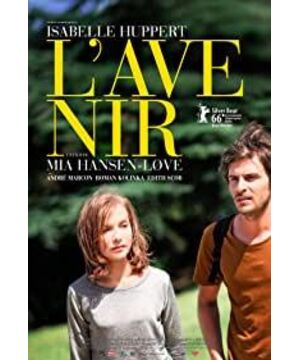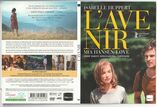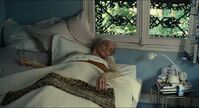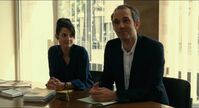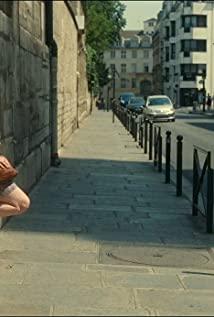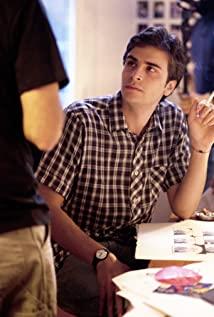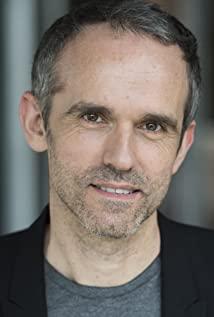At the beginning of "Things to Come", there are two details.
1. Natalie sentenced students on the ferry for a philosophical essay titled "Can one put oneself in someone else's shoes?"
2. They disembarked to see Chateaubriand's Twilight Stone on the island. In the smoky gray lens, this line of words: "A great writer sleeps here. He only wants to hear the wind and the sea. People in the past, please respect his last wish."
Fabien (her favorite protégé) walked into Natalie's house with a dusty face and said, "Sorry, I've been making a revolution for the past few days, haven't slept, haven't showered, haven't gone home." He put his backpack on her gleaming white floor and looked around casually: the bookshelves were piled with philosophy books, and the children sat at the table eating fresh strawberries. Her husband, also a professor of philosophy and a guardian of Kant, solemnly cut the contents of the plate, never raising his eyes to the intrusion of this sloppy young man. Natalie walked around the restaurant and kept saying to him, eat strawberries? Eat some strawberries.
A middle-class house built with cultural capital, floor-to-ceiling large glass windows, and morning dew on the petals. Fabien sat inside like a piece of furniture that had been created out of thin air. I think, I think, this is what I imagine her home to look like. She told me how to have a big glass room full of books. On a sunny day, sitting in it seems to be absorbing some of the radiating out of it. Someone else told me he was born in a house with 20,000 books. I've always been jealous. I grew up in a house with no books, no music, and no philosophical discussions. Every book today has been piled up like a small ant since I was twelve or thirteen years old. Not complaining, just a fact, just like when I was a little girl, my biggest dream was just a Natalie study, the same fact.
Later, Natalie went to the mountains to meet the reclusive Fabien, who, with a group of philosopher friends, grew vegetables, smoked hemp, wrote books, and talked about the contradictions of authorship in German. In the uninspired background, Natalie—a philosophy professor, the woman who walked barefoot down the street and handed out communist leaflets more than thirty years ago—was quietly washing the dishes, arranging the bookshelves, repeating the words over and over again. Calling out the cat's name (Pandora) through the woods. Fabien despised her for living a middle-class quality of life. She said, do you think I have never seen a day like yours? I've seen it all and thought about it. And now I just want to read philosophy and teach young people to read philosophy. On the last night, they seemed to reconcile, although he still didn't understand her. He said, you can come over at any time, and I will save you a room.
Natalie laughed when she got back to Paris and caught a glimpse of her ex-husband and his lover on the bus. She went to the movies alone, and after not being single for many years, she finally began to be approached by messy men again. She went to talk to the publishers about philosophy textbooks, and thank goodness they didn't go with the sensational new design. She continues to teach. Her students turned in early, she said, really, don't think about it. Her daughter is also a mother. It was Christmas Eve, and she hugged her grandson and sang a medieval children's song.
Chateaubriand lived a glorious life, saw smoke, saw fire, walked through deserts, and voluntarily went into exile. He once wrote, "What a solemn, what a melancholy picture, one cannot be expressed in human language. The most beautiful night in Europe, it cannot be imagined. Our useless farmland, where people are stationed in every corner. Only in the In such a wasteland, the soul can enter the forest and the ocean, roam in the endless lakes, and wander in the abyss of waterfalls. It is lonely and opposite to God." Finally, he closed the poet's eyes. He died in Paris.
I thought he was going back to Paris with the exhaustion of a fallen king. Natalie always reminds me of the hostess of the house in Paris. Sixty-year-old illustrator, living in District 15. Raise two cats, one named Calypso and one named Nabi. Make pottery every Tuesday afternoon. One day, she baked a quiche. We eat face to face. There is water in the bottle. She gave me an old book with fairy tales from every street in Paris. I told her that I'm going to the nuit debout with my friends tonight. She nodded. I figured she might watch an American movie her age, like every Tuesday, by the fire, under the blanket, and fall asleep every now and then. She said, then you pay attention to safety. I thought that the day-to-day life was a kind of exhaustion like a desolate king, but now I think of Natalie's philosophical papers being blown by the wind, and she went to pick it up in a panic. I thought of the mistress's case, some notes, some paintings; she was sixty years old and still doing some good things. Why is it a bad word? I think that the last time Chateaubriand returned to the crowd was perhaps his most transparent time.
Natalie and Fabien, me and her. I can vaguely see the development of two roads - building a house, or the Renaissance.
Today, she sawed wood, killed chickens and dug ditches. I read Molière; she grew corn-baked bread and made handmade noodles, and I read Flaubert; she drove a small stone cart with more than a hundred mosquito bags and ran. I started an absurd play; she milked milk, made tea, built a house and sewed canvas bags, and I read the next Molière; she made friends with chickens, insects, dirt, and stars that little cows love to peck, and I translated some things; Back in the Balakia Mountains, singing spring outing songs along the way, I sat in a chair covered with morning dew and talked to the professor about some dead people. She said that after taking the first shower in a few days, climbing a mountain, finding a crumbling wifi, thinking about the recent life and the life after, feeling that the world has been knocked apart, water seeps in a corner, expanding the torrential flood that will flood into the world of others . "I can't imagine you going to farm," she said. I said neither do I. Will we evolve into different people, she said? I think we are finally going to have one crawling in glass buildings and one wandering in the world. I think, like Fabien, in a secluded mountain, will you save a room for me?
View more about Things to Come reviews


